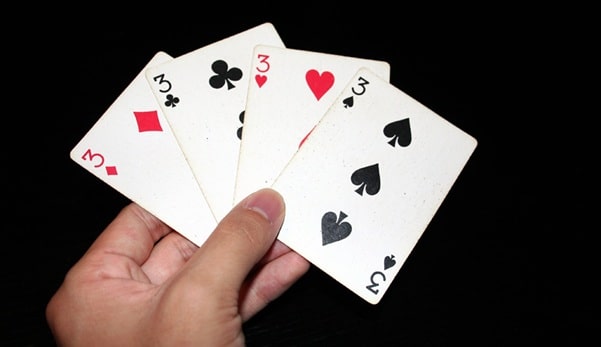Rummy may look like a simple card game on the surface, but seasoned players know it’s a blend of skill, observation, strategy, and timely decision-making. Whether you’re someone who just started exploring Indian Rummy or a casual player trying to step up your game, a few smart strategies can go a long way in helping you win more consistently.
Let’s walk through some practical, easy-to-apply tips that can sharpen your Rummy game and help you stay one step ahead of your opponents.

1. Always Build a Pure Sequence First
This cannot be stressed enough. In Indian Rummy, without a pure sequence (a sequence of three or more consecutive cards of the same suit without a Joker), your declaration will never be valid—even if the rest of your hand is picture-perfect.
Pro Tip: Start forming your pure sequence as soon as you receive your cards. It reduces your risk and gives you a solid foundation to build on.
2. Observe Your Opponent Closely
Winning isn’t just about your cards—it’s also about reading your opponent like an open book. Pay attention to the cards they pick from the open pile and the ones they discard. These little moves can reveal a lot about the kind of hand they’re trying to build.
Look out for:
- If they avoid face cards, they’re playing safe.
- If they repeatedly pick from the discard pile, they’re desperate for specific cards.
3. Discard High-Value Cards Smartly
Unless they’re a part of your current or potential sequence/set, get rid of high-point cards like Kings, Queens, Aces, and Jacks. Holding onto them for too long is risky—especially if your opponent declares suddenly.
Quick Rule: If it’s not helping your sequence or set, ditch it.
4. Use Jokers Wisely—Not Randomly
Jokers are the most flexible cards in Rummy. But using them without a clear plan is a waste of a valuable resource. Only use Jokers to complete impure sequences or sets once you’ve secured a pure sequence.
Bonus Tip: Don’t use a Joker in your first sequence—save it for more complex combinations.
5. Arrange Your Cards the Smart Way
A cluttered hand leads to a confused mind. One of the simplest yet most effective tips is arranging your cards in alternate colours (red-black-red-black). This reduces chances of accidental discards and makes pattern recognition easier.
It’s like tidying your workspace—you work better when things are in order.
6. Don’t Wait for the “Perfect Card”
A lot of players lose games waiting endlessly for that one card to show up. Rummy is about adaptability. If a particular card hasn’t shown up in a few rounds, reevaluate your hand and shift your strategy.
Remember: Good players adjust. Great players adapt mid-game.
7. Master the Art of Bluffing
Yes, bluffing works in Rummy too. Sometimes, you can trick your opponent into discarding useful cards by picking and discarding in a way that hides your actual hand. For instance, discard a card you don’t need but appears useful to them.
It’s all about playing with their mind while keeping yours calm.
8. Learn to Count Cards
Not literally every card—but developing a rough idea of which cards have already been played can help you estimate your chances of getting the ones you need. It’s especially useful in two-player games where tracking is easier.
With time and practice, this becomes second nature.
9. Go Beyond 3-Card Sets and Sequences
Most players stick to the basic 3-card combinations, but did you know Rummy allows sets and sequences of up to 4 cards? Expanding your sets this way can help reduce points and open up space in your hand.
Try this: If you have 6-7-8-9 of Hearts, use them all—it’s a valid sequence.
10. Stay Cool Under Pressure
Rummy isn’t just a game of cards—it’s a game of patience. You might start with a weak hand, but staying calm and making calculated moves can often turn things around. Don’t let frustration or desperation push you into rash decisions.
Think of every round as a fresh opportunity to realign your game.
Bonus Tips: Quick Hits to Level Up
- Middle cards are gold: Cards like 5, 6, and 7 have more options for sequences.
- Watch the discard pile like a hawk: It gives away more than players realize.
- Rearrange your cards often: A new pattern might emerge with each move.
- Fold when necessary: If your hand is hopeless from the get-go, don’t hesitate to drop.
Final Thoughts
Winning at Rummy consistently is not about luck—it’s about how well you manage your hand, observe your opponents, and make decisions under pressure. Every card matters. Every move counts. Whether you’re playing offline or on a rummy app, the more you play with intention, the sharper your instincts become.
So the next time you sit down for a game of Rummy, don’t just play—play smart.
Good luck, and may the best hand win!
Frequently Asked Question (Faq’s)
Q1. What is a pure sequence in Rummy and why is it important?
A pure sequence is a group of three or more consecutive cards of the same suit without using a Joker. It’s essential because your declaration will be invalid without at least one pure sequence, no matter how good the rest of your hand is.
Q2. How can I observe my opponent’s strategy during a Rummy game?
Keep an eye on the cards your opponent picks and discards. If they avoid high cards, they’re playing safe. If they often pick from the discard pile, they’re chasing specific cards.
Q3. Why should I discard high-value cards early?
High-value cards like Kings, Queens, and Aces can significantly increase your point load if your opponent declares. Discarding them early reduces your risk unless they’re part of a forming sequence or set.
Q4. What’s the best way to use Jokers in Rummy?
Use Jokers only to complete impure sequences or sets after you’ve formed a pure sequence. Avoid using them too early or randomly, as they’re your lifeline in tricky situations.
Q5. Is there a specific way to arrange cards for better strategy?
Yes. Arrange your cards in alternating colors (e.g., red-black-red) to reduce confusion and accidental discards. A neat hand allows for quicker pattern recognition.
Q6. Should I always wait for the perfect card to complete my set?
No. Adapt your strategy if the card isn’t showing up. Good Rummy players pivot their strategy mid-game instead of waiting endlessly.

